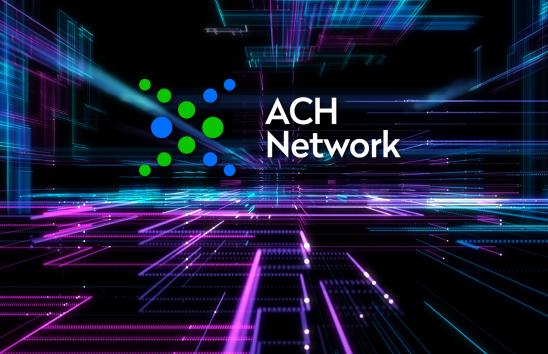Improving ACH Network Quality - Unauthorized Entry Fee
This rule is intended to improve ACH Network quality by reducing the incidence of ACH debits that are returned as unauthorized. Under this Rule, an ODFI will pay a fee to the RDFI for each ACH debit that is returned as unauthorized (return reason codes R05, R07, R10, R29 and R51). ODFIs will have an economic incentive to improve the quality of the ACH transactions they originate. RDFIs will be compensated for a portion of the costs they bear for handling unauthorized transactions, and will experience reduced costs due to a reduction in unauthorized transactions over time.
Details
This Rule is intended to improve ACH Network quality by reducing the incidence of ACH debits that are returned as unauthorized. Under this Rule, an ODFI will pay a fee to the RDFI for each ACH debit that is returned as unauthorized (return reason codes R05, R07, R10, R29 and R51). ODFIs will have an economic incentive to improve the quality of the ACH transactions they originate. RDFIs will be compensated for a portion of the costs they bear for handling unauthorized transactions, and will experience reduced costs due to a reduction in unauthorized transactions over time.
The Rule will not apply initially to international ACH transactions (those bearing the IAT SEC Code). While conceptually the rationale for the Unauthorized Entry Fee applies to IATs, the operational, technical and business process changes that would be necessary to include IAT within the scope of the fee would not be feasible within the implementation time period of the rule. Therefore IATs will not be included initially, but could be added within the scope of the fee at a later date.
The Rule defines a methodology by which Nacha staff will set and review every three years the amount of the Unauthorized Entry Fee.
Nacha and the two ACH Operators will arrange for a system to collect and distribute the fees; the charges and credits for these fees will be reflected on a Participation DFI’s statement from its ACH Operator.
Technical
The Rule adds a new Section in Article One (General Rules) to establish “Unauthorized Entry Fees.” One subsection establishes the obligation of the ODFI to pay the fees to the respective RDFIs. A second subsection establishes the authority of the Nacha staff, and the methodology used, to determine the specific amounts of the Quality Fees. The Quality Fees will further be defined in Article Eight (Definitions).
This Rule became effective beginning with applicable return entries that have a Settlement Date of October 3, 2016 (a Monday, and the first banking day of the quarter). ODFIs should work with their Originators, if desired, on implementing systems, tools and processes to reduce returns and thereby minimizing fees they incur. ODFIs in particular should note that fees applied to return entries as of October 3, 2016 would relate to forward entries initiated as early as August 1, 2016.
Impact
Benefits of the Proposal
All ACH Network participants will experience at least some indirect benefit through higher quality, fewer exceptions, greater customer satisfaction, and lower reputational risk for the ACH Network. Any beneficial impact of the Rule on ACH Network quality should be visible through the monitoring of the return activity covered by the Rule.
While ODFIs will directly bear the costs of the Unauthorized Entry Fees, the existence of the fees should encourage many ODFIs to perform enhanced risk management and monitoring of Originators with high volumes or rates of Entries that result in unauthorized returns. Conceivably, service providers will bring new tools and services to market to enable ODFIs to avoid some fees, and ODFIs might be able to provide new tools and services to Originators (e.g., tools to reduce data entry errors).
RDFIs will directly benefit from the Unauthorized Entry Fees that are passed to them, which will provide a partial cost recovery for externally-imposed costs. Of perhaps greater benefit, any reduction in the number of unauthorized Entries will also directly benefit RDFIs through the direct avoidance of costs that would have been caused by those transactions, including due to unnecessary customer service contacts. In turn, fewer customer service contacts should also positively impact RDFI customer satisfaction.
Receivers will directly benefit from fewer unauthorized entries being posted to their accounts, including the time and effort required to dispute such transactions.
Although Originators will not directly benefit from the Rules, in general all ACH Network participants benefit from a higher quality transaction environment.
Costs to Comply with the Proposal
ODFIs will directly bear the costs of the Unauthorized Entry Fees. Under this Rule, an ODFI will pay a fee of $4.50 to the RDFI for each ACH debit that is returned as unauthorized (return reason codes R05, R07, R10, R29 and R51). Further, ODFIs will have costs to the extent that they work with their Originators to implement systems, processes and tools to lower return rates. ODFIs can avoid the fees, however, by reducing the number of transactions they originate that result in unauthorized returns.
The Rule does not require RDFIs to make any changes to the way in which they handle unauthorized transactions, from the initial customer contact through returning the transaction. Therefore RDFIs will not incur direct costs due to the Rule. RDFIs would be credited for Fees in their settlement accounts. Some RDFIs might have minimal costs to account for fees credited to their accounts, which serve to offset operational costs.
The ACH Operators will likely incur costs to implement a system to assess, collect and disburse the Unauthorized Entry Fees.
Receivers likely will not incur any costs as a result of this Rule.
Originators will likely bear at least some of the costs initially borne by their ODFIs, such as through transaction, returns, and other service fees. Originators can avoid some of these costs, however, by reducing the number of transactions they originate that result in unauthorized returns.
FAQs Section
What is an Unauthorized Entry Fee?
-
An Unauthorized Entry Fee is a fee paid by an ODFI to the RDFI for certain returns of ACH debit transactions due to a problem with the Receiver’s authorization.
-
The Rule requires an ODFI to pay a fee to an RDFI for any ACH debit returned due to a reason of unauthorized (return reason codes R05, R07, R10, R29 and R51). International ACH Transactions (IAT) initially will not be covered by the fee, but could be included in the future.
Which Return Reason Codes are covered by the Unauthorized Entry Fee?
The Unauthorized Entry Fee covers Return Reason Codes R05, R07, R10, R29 and R51
Are any SEC Codes not subject to the Unauthorized Entry Fee?
Yes. International ACH Transactions (IAT) initially will not be covered by the fee, but could be included in the future.
Who will set the amount of the fee?
The amount of the Unauthorized Entry Fee will be determined by Nacha staff according to an explicit methodology defined in the Rule.
What is the methodology for setting the amount of the fee?
The Rule defines a methodology by which Nacha staff would set and review every three years the amount of the Unauthorized Entry Fee. In setting the amount of the fee, Nacha staff will apply the following principles:
-
Nacha will conduct a representative survey of RDFIs of various types and sizes to determine the expense incurred in handling and returning unauthorized Entries.
-
The amount of the Unauthorized Entry Fee would be set at a level that is less than the weighted average cost determined by such a survey.
-
The Unauthorized Entry Fee would be set at a level that Nacha staff reasonably believes will provide an incentive for Participating DFIs to improve the quality of ACH processing without unduly discouraging participation in the ACH Network; and
-
In re-evaluating the amount of the Unauthorized Entry Fee, Nacha staff would consider the extent to which the existing fee amount has had an effect on return rates.
What is the amount of the Unauthorized Entry Fee?
The amount of the Unauthorized Entry Fee will be $4.50 per return.
How will the fees be collected and disbursed?
Nacha and the two ACH Operators will arrange for a system to collect and distribute the fees. The charges and credits for these fees will be reflected on a Participation DFI’s billing statement from its ACH Operator.
When will the fees become effective?
-
This Rule became effective beginning with applicable return entries that have a Settlement Date of October 3, 2016 (a Monday, and the first banking day of the quarter). ODFIs in particular should note that fees applied to return entries as of October 3, 2016 would relate to forward entries initiated as early as August 3, 2016.
-
This effective date varies from the standard practice of using the third Friday of September; however, because the ACH Operators will count the covered return entries on a monthly basis and reflect them on a monthly billing statement, in this instance it makes sense to have the Rule become effective on the first business day of the month.
As an ODFI, can I dispute the assessment of a fee?
No. The assessment of a fee is based solely on the return of a debit using one of the applicable Return Reason Codes. There is no provision for challenges to fee assessments, since the payment is based on a simple mathematical application of the per return fee times the number of returns using the applicable Return Reason Codes.
Why should an ODFI be charged a fee if a consumer really authorized the transaction?
-
This type of consumer fraud does happen among other things, which is a major reason why the Unauthorized Entry Fee will be set at an amount that is lower than RDFIs’ full cost recovery. A partial cost recovery already accounts for the fact that there is some portion of unauthorized returns that is due to consumer fraud.
-
In addition, an unauthorized return always represents an underlying dispute between an Originator and its customer with which it chooses to do businesses. The RDFI is rarely in the position of being able to prevent such a dispute.
Who will receive the Unauthorized Entry Fee?
The RDFI of the original debit will receive the Unauthorized Entry Fee. Nacha will not receive any portion of the fee.
Will the amount of the Unauthorized Entry Fee change over time?
The amount of the Unauthorized Entry Fee will stay the same for the first three years, and then could change. The amount of the fee will be reviewed every three years. The amount of the fee will be published in the Schedule of Fees section of the annual Rulebook.
Will the Unauthorized Entry Fee affect my charges from my ACH Operator?
No. Unauthorized Entry Fees are separate and distinct from charges by an ACH Operator for any product or service that they may provide.



